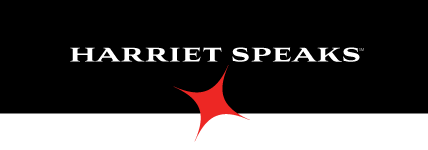The year 2018 will mark fifty years of what many consider to be the end of the Civil Rights Movement. Fifty years and a Black president later, one thing is clear: No one is coming to save us. We will have to save ourselves. Saving ourselves starts with how we think and treat one another. A new year can bring an opportunity for Black people to think differently, an opportunity for a "Black Year's resolution."
Read MoreMuch has been written about Black hair. As of late, the narrative has been complimentary and focused on celebrating those of us who wear so-called “natural hair.” But what hasn’t been said about the topic of Black women’s hair is this: it is really none of anyone else’s business how a Black woman chooses to wear her hair.
Read MoreBut for all of the encouragement to talk about race at work, we do not have guidance on how to do it. Companies begin the process of talking about race at work, only to quickly abandon it out of frustration or objections from those who felt it was uncomfortable or unproductive. There are things that companies should do prior to talking about race.
Read MoreIt is time for us to discard the quick, easy fixes to racism and brace ourselves to do the work in changing policy and advancing solutions that may not be equal, but are equitable. “Come Meet a Black Person” makes us think we are doing something, but it centers whiteness and encourages superficial actions. “Well, something is better than nothing”, some might say. Well, actually, no, it's not.
Read MoreThe first and most important step to truly valuing diversity and inclusion is to rely less on informal processes where people of color are excluded because of the history of your organization or your own relationships. When you look across your company or organization and see little diversity and less inclusion, before you run that ad, before you staff that department, look at HOW you are hiring people.
Read MoreTIKI Brand, the maker of TIKI torches, was recently thrust into the national spotlight and linked to racism. TIKI Brand’s response to this potential crisis should be replicated by other organizations of all types and sizes. Here is a 5-step guide for how you can be successful in these instances, too.
Read MoreNon-teaching and/or support staff in schools is important. They have the ability to make a difference in the lives of students. This category includes bus drivers, custodians, cafeteria staff, playground aides, teachers’ aides, and more. The people in these roles are overwhelmingly Black. They can be voices of support, love, and encouragement to all children, but particularly to Black children in schools who seldom see adults who look like them. But, we miss this additional resource for Black children because we have rendered this group of people invisible.
Read MoreDeloitte has announced it will eliminate affinity groups and replace them with “inclusion councils.” This action taken by Deloitte is problematic and does not effectively address the issues related to African Americans, in particular, as it relates to diversity and inclusion.
Read MoreOne of the biggest challenges in the area of equity and inclusion is language. “What do we say? How do we say it? What if we get it wrong?” These are just a few of the questions that keep diversity folks up at night and many who want to engage in honest conversation on the sidelines. The truth is in today’s environment we get it wrong more than we get it right.
Read MoreBy now, many of you have seen the Pepsi commercial that featured Kendall Jenner and attempted to show the company as a supporter of activism. The outcry and criticism on social media was immediate. After at first defending the ad, within 24 hours of its release, Pepsi decided to pull it, creating what I now call "PepsiGate."
Read More










